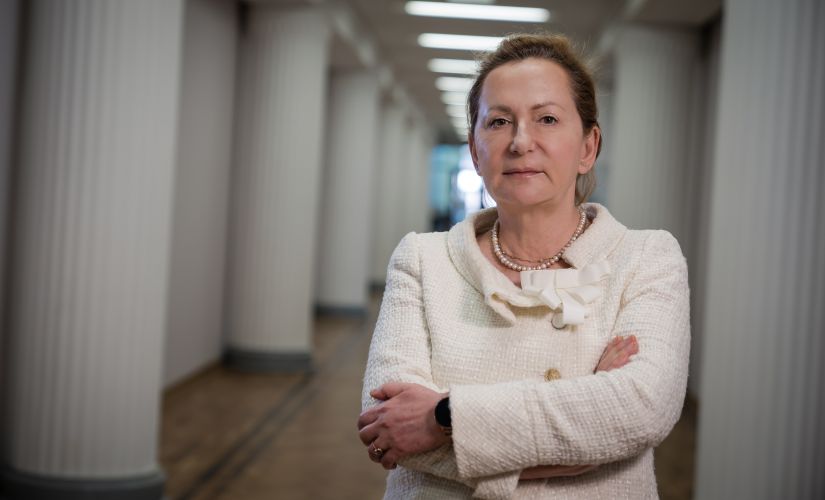Prof. Katarzyna Grabowska, dean of the Faculty of Materials Technology and Design at TUL, the grant coordinator, shared with ŻU the following information about the project.
We received €1.5 million grant from the Horizon Europe program for the project. Lodz University of Technology's partners are the following, highly-ranked universities: the University of Stavanger, Ghent University, and the Catholic University of Ávila. As the coordinator of the project, I see my role in strengthening and increasing research activity and innovative capacity of TUL researchers, especially those in the Faculty of Material Technologies and Textile Design, of which I am the dean.
The acronym AIdesignTEX stands for Innovative IT Tools For A Circular Textile Economy: Driving Sustainability and Resource Efficiency (Nowatorskie narzędzia informatyczne dla gospodarki obiegu zamkniętego w przemyśle tekstylnym: wspieranie równowagi i efektywności zasobów).
In the project, we are going to employ artificial intelligence and machine learning tools to design textiles sustainably. Adapting the process to a closed loop economy implies minimizing resource consumption, reducing waste, reducing emissions, and recycling textiles efficiently. We are going to build, as part of a micro-project, closed loop economies for textiles made from a range of raw materials.
The goals of the project are aligned with the objectives of the European Green Deal and respond to the environmental challenges faced by the textile industry. AIdesignTEX also puts a strong emphasis on educational outreach campaigns, intercultural dialogue, local stakeholder engagement, knowledge sharing, and skills development.
I am very excited for my team and I to be implementing this project. I believe that our collective efforts will bring significant advantages both to science and to the textile industry, promoting sustainability and innovation in this important field.

